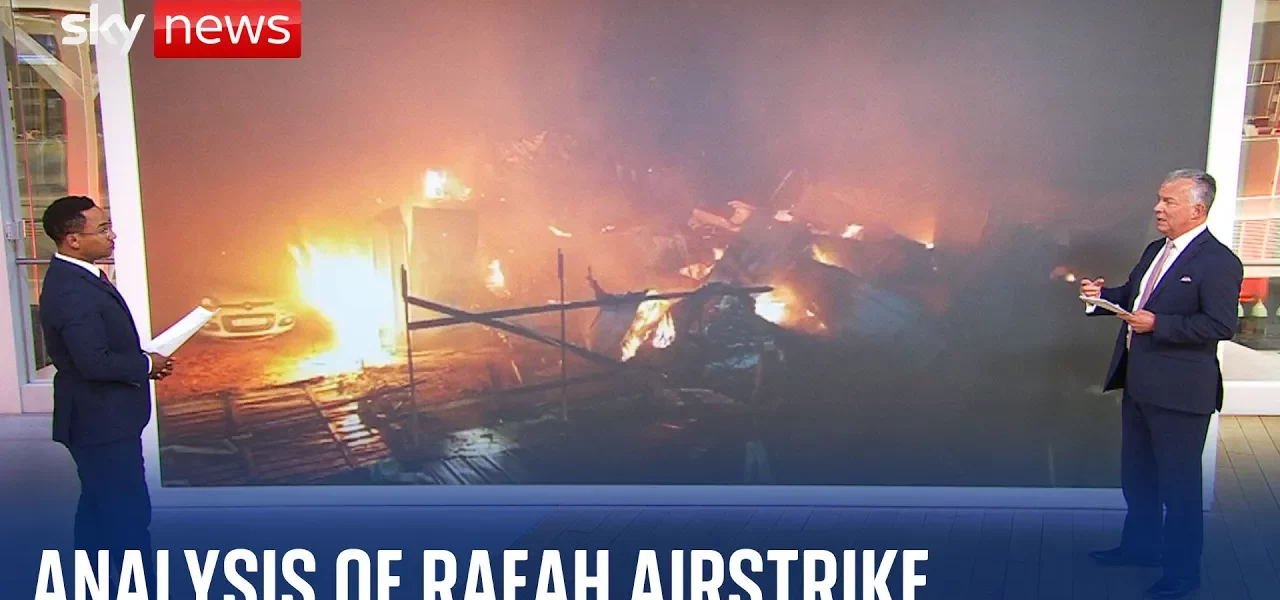Analysis of IDF Airstrikes in Rafah: Civilian Impact and Legal Implications

This article provides a comprehensive analysis of the recent IDF operations in Rafah, focusing on the precision airstrikes, civilian safety, and the overarching legal responsibilities under international law. We will explore the implications of these military actions and their potential repercussions on the conflict in Gaza.
Introduction
The recent IDF airstrikes in Rafah have drawn significant attention due to their proximity to civilian facilities and the subsequent casualties reported. As Israel claims these were precision strikes aimed at Hamas, the implications of these actions raise critical ethical and legal questions regarding civilian protection in armed conflict. This article delves into the details surrounding the airstrikes, the response from international bodies, and the ongoing military strategy employed by Israel in its conflict with Hamas.
The Nature of the Airstrikes
The IDF has characterized their recent operations in Rafah as precision strikes, asserting that the intelligence gathered justifies the targeting of a Hamas compound located dangerously close to a UN facility. However, this raises questions about the effectiveness and ethical justification of such military actions.
Precision Strikes Defined
Precision strikes are military operations designed to minimize collateral damage while effectively targeting military objectives. The IDF claimed that the tents destroyed in the airstrike were part of a Hamas headquarters. However, the close proximity of these targets to civilian areas complicates the legality of such operations under international law.
Casualty Figures and Civilian Impact
- Reported casualties include 45 killed, among which 23 are women and children.
- 249 individuals were reported wounded, indicating a significant impact on the civilian population.
The humanitarian consequences of these strikes cannot be understated. The Geneva Convention mandates that all parties in a conflict must take precautions to protect civilian lives, especially when military operations are conducted in densely populated areas.
Legal Responsibilities in Armed Conflict
Under international humanitarian law, both Israel and Hamas bear the responsibility to protect civilian populations. The principle of proportionality is particularly relevant in assessing the legality of military operations.
The Principle of Proportionality
The principle of proportionality dictates that the harm caused to civilians or civilian property must not be excessive in relation to the concrete and direct military advantage anticipated. This principle is crucial in determining the legality of the IDF’s actions in Rafah.
International Response and Scrutiny
The international community, particularly organizations like the United Nations and the International Court of Justice, have expressed concerns regarding the legality of the IDF’s actions. Statements from these bodies have emphasized the need for Israel to adhere to its obligations under international law.
Strategic Implications for Israel
Israeli Prime Minister Benjamin Netanyahu’s determination to continue military operations in Rafah, despite international calls for restraint, highlights the complex dynamics of the conflict.
The Ongoing Conflict with Hamas
Despite significant military efforts, Hamas remains resilient, continuing to launch attacks and maintain its operational capabilities throughout Gaza. This ongoing conflict raises questions about the effectiveness of military solutions in achieving lasting peace.
Potential for Peace Talks
Amidst the ongoing violence, there have been discussions about the possibility of peace talks. However, the likelihood of these talks resolving the underlying issues of the conflict appears low, especially given the recent escalation of hostilities.
Conclusion
The IDF’s airstrikes in Rafah present a complex interplay of military strategy, civilian safety, and legal responsibilities under international law. As the situation continues to evolve, it is imperative for all parties involved to prioritize the protection of civilians and work towards a sustainable resolution to the conflict. The international community’s engagement will be crucial in addressing the humanitarian crisis and facilitating peace. For more insights on the ongoing conflict and international law, explore our related articles.
“`




